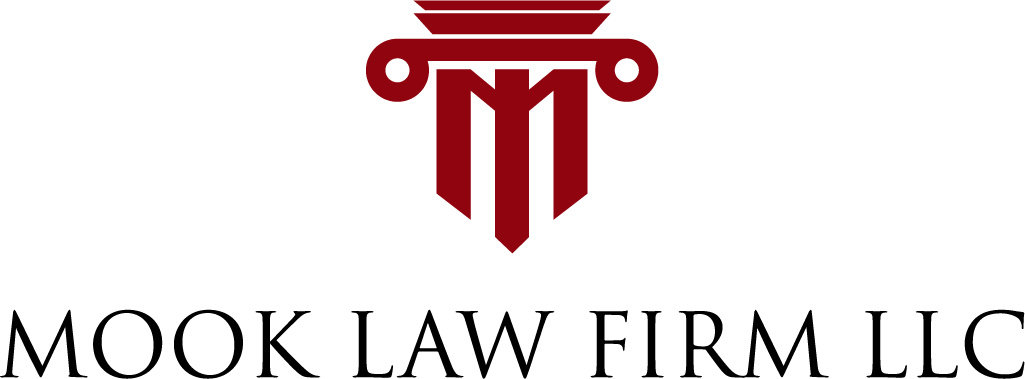
What Protections Do Consumers Have Against Deceptive Business Practices?
Consumers expect businesses to be honest in their dealings, but unfortunately, deceptive practices happen all too often. Whether it's false advertising, hidden fees, or misleading contracts, these tactics can cause serious financial harm. Fortunately, both federal and Missouri state laws provide strong protections for consumers.
Deceptive business practices not only harm individual consumers but also undermine fair competition and trust in the marketplace. When businesses engage in misleading tactics, they gain an unfair advantage over honest competitors, making it harder for consumers to make informed choices.
With our consumer protection attorney, we help individuals understand their rights and take action when businesses cross the line.
A Run Down of Deceptive Business Practices
Deceptive business practices cover a broad range of misconduct. Some businesses misrepresent their products or services through misleading claims, exaggerated benefits, or hidden terms.
False advertising, for example, can lead consumers to purchase a product under false pretenses, only to find out later that it doesn’t meet the advertised claims. Other businesses engage in bait-and-switch tactics, advertising one product at a low price to lure customers in, only to push them toward a more expensive option.
Hidden fees are another common issue, where businesses add undisclosed charges that leave customers with higher costs than expected. Consumers also face unfair debt collection practices, where collectors harass them with phone calls, threats, or deceptive statements about a debt’s validity.
Predatory lending is another serious problem, as some lenders trick borrowers into unfavorable loans with undisclosed terms or high-interest rates. Additionally, businesses selling defective or unsafe products can put consumers at risk, violating their rights and causing financial loss.
When businesses engage in these tactics, consumers have legal options to recover losses and stop further misconduct.
Federal Consumer Protection Laws
Several federal laws protect consumers from unfair business practices. The Federal Trade Commission Act (FTC Act) prohibits deceptive or unfair business practices, and the Federal Trade Commission (FTC) investigates complaints and takes action against violators.
The Fair Debt Collection Practices Act (FDCPA) limits what debt collectors can do, banning harassment, false statements, and other abusive tactics. The Truth in Lending Act (TILA) requires lenders to clearly disclose loan terms, including interest rates and fees.
The Consumer Financial Protection Act created the Consumer Financial Protection Bureau (CFPB), which regulates financial institutions and protects consumers from fraud. The Magnuson-Moss Warranty Act makes sure businesses honor warranties and prevents deceptive warranty practices.
While these laws provide nationwide protections, Missouri has its own statutes that give consumers even more rights.
Missouri Consumer Protection Laws
Missouri’s Merchandising Practices Act (MPA) is one of the strongest consumer protection laws in the state. It prohibits false advertising, fraud, and deceptive business practices in transactions involving goods or services. Under the MPA, consumers can sue businesses for damages, and in some cases, they may recover attorney’s fees and additional compensation.
Other key Missouri laws include:
Lemon laws: Protect buyers of defective vehicles, giving them the right to refunds or replacements.
Telemarketing fraud laws: Prohibit deceptive phone sales and robocalls.
Home repair fraud laws: Prevent contractors from using misleading tactics to secure business.
When a business violates these laws, legal action can force them to stop and compensate affected consumers.
How Businesses Try to Avoid Liability
Many businesses that engage in deceptive practices go to great lengths to avoid liability. Some use vague or confusing language in contracts to make it difficult for consumers to recognize unfair terms.
Others may bury important information in fine print, hoping customers won’t notice until it’s too late. Companies may also try to resolve disputes through arbitration clauses, which limit a consumer’s ability to take legal action in court.
Businesses facing legal complaints often deny wrongdoing and may offer small settlements in hopes of avoiding a lawsuit. Some even change their business names or restructure to avoid liability altogether. These tactics make it even more important for consumers to understand their rights and take action when they’ve been misled.
Legal Remedies for Victims of Deceptive Practices
When consumers fall victim to deceptive business practices, they have several legal remedies available. Depending on the circumstances, they may be able to seek a refund, demand contract modifications, or take legal action for damages.
Under Missouri’s Merchandising Practices Act, consumers can file lawsuits against businesses that engage in fraud, and in some cases, courts may award additional compensation to punish the company’s wrongdoing.
Consumers who’ve been misled by false advertising or defective products may also be eligible to join class-action lawsuits. These cases allow multiple victims to take legal action against the same business, increasing the chances of holding the company accountable.
For those facing harassment from debt collectors or predatory lenders, reporting violations to state or federal agencies can lead to investigations and enforcement actions. Be sure to work with a consumer protection attorney.
Deceptive Practices in Online Transactions
Deceptive business practices have expanded into digital transactions. Some online retailers mislead customers with fake discounts, exaggerated product descriptions, or hidden fees. Subscription-based services often use deceptive practices, such as auto-renewals with undisclosed terms, making it difficult for consumers to cancel their memberships.
Online scams have also become more sophisticated. Fake e-commerce websites trick consumers into paying for products that never arrive, while phishing scams impersonate legitimate businesses to steal personal or financial information.
Additionally, some businesses use fake reviews to manipulate consumer perceptions, making it challenging to distinguish between genuine and fraudulent products or services.
To combat these online threats, consumers should verify a website’s legitimacy before making purchases. Checking for secure payment options, researching the seller, and reading independent reviews can help identify potential scams. Reporting fraudulent transactions to consumer protection attorneys or agencies can also prevent others from falling victim.
Consumer Protection Agencies in Enforcement
Consumer protection agencies play a crucial role in holding deceptive businesses accountable. The Missouri Attorney General’s Office enforces state consumer protection laws, investigates complaints, and takes legal action against businesses that violate consumer rights.
The Federal Trade Commission and the Consumer Financial Protection Bureau also regulate unfair business practices on a national level. Agencies also educate consumers about their rights and provide resources for resolving disputes.
When consumers report deceptive practices, these agencies can launch investigations, issue fines, and even shut down fraudulent operations. By working together with consumer protection attorneys, these agencies help safeguard the public from deceptive business tactics and promote fair market practices.
Steps Consumers Can Take to Protect Themselves
While legal protections exist, consumers should take proactive steps to avoid falling victim to deceptive business practices.
Reading contracts carefully is one of the most important ways to protect yourself. Many businesses rely on consumers skimming over fine print, where they hide unfair terms, fees, or conditions that limit a buyer’s rights. Always take the time to review agreements before signing and ask questions if anything seems unclear.
Researching a business before making a purchase can also help prevent problems. Checking reviews, complaints, and business ratings with agencies like the Better Business Bureau (BBB) can provide insight into a company’s reputation. If a business has multiple complaints about deceptive practices, it’s best to look for other options.
Another key step is keeping detailed records of transactions, including receipts, emails, and contracts. These records can be crucial if a dispute arises and legal action becomes necessary. If a business engages in deceptive practices, reporting them to a consumer protection attorney or a government agency can help prevent further harm.
Contact Our Firm
Deceptive business practices harm consumers every day, but the law offers strong protections. If you believe you’ve been the victim of a deceptive business practice, don’t wait to take action. At Mook Law Firm LLC, we serve clients in Kansas City, Missouri. Get in touch today to work with our consumer protection attorney.

